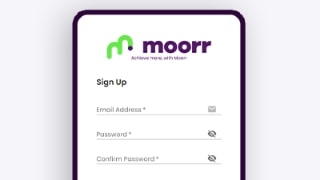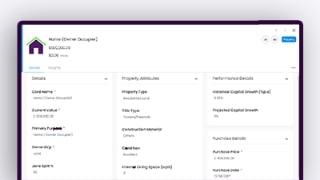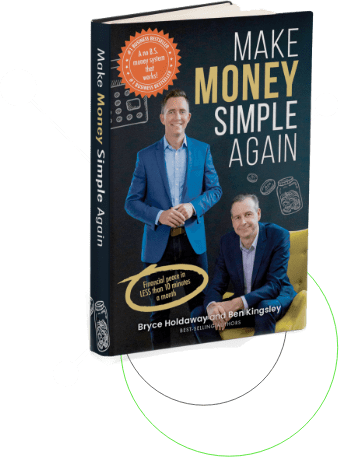Welcome to your step-by-step guide on how to recover from credit card debt and regain control of your finances!
Debt can be overwhelming and stressful, but with the right plan and determination, you can pave your way to a debt-free future.
Inspired by Case Study 1 in our best-selling book, “Make Money Simple Again,” this article is packed with useful tips and real-life scenarios to help in your journey of getting rid of credit card debt.
Don’t miss the opportunity to download the book for FREE and embark on your very own journey to financial freedom.
This article will suit you if higher costs of living have put pressure on your finances, and your credit card debt is steadily increasing. Let’s dive into how the MoneySMARTS system can help you achieve your goal.
To embark on this journey to financial freedom, you must first assess your current financial standing.
Take a deep breath, and let’s dive into the numbers. Understanding where your money goes and identifying your debt is essential to crafting a plan for the future.
The first step toward financial recovery is to acknowledge that change is needed. You must believe in your ability to achieve financial discipline and self-control. Think about past achievements in your life, such as getting through university or moving out to live independently. These experiences show that you have the strength to take control of your money.
Gather your financial documents, including payslips, bank statements, and credit card statements. Familiarise yourself on where to look for this information. Is it on an online banking platform? What are your login details? Or is it a paper trail? Do you know where you’ve stored them? Or are they in your email inbox?
How can Moorr Help?:
Create your free account in Moorr, log in, and follow the prompts. You’ll be asked to enter some numbers. Don’t worry if you don’t know it off the top of your head. Just put in a rough figure, and you can update it once you know for certain.
With your financial documents in hand, it’s time to sort through the numbers. Record your income, savings, assets, and outstanding debts. This process will provide you with a high-level view of your financial position and help you identify areas for improvement.
How can Moorr Help?:
Now that you have the financial documents, update each section in Moorr, particularly the income, assets, and borrowings sections. We’ll work on the expenses next.
Now that you have a clear understanding of your finances, it’s time to break down your spending into essential living expenses and discretionary items. Identify and calculate your surplus money, which will be crucial in paying down your debts. Knowing how much you can afford to allocate to debt repayment is key to creating a sustainable plan.
How can Moorr Help?: Let’s track your spending!
Once you’ve completed all this, check out your Dashboard on Moorr! This is the coolest part because it tells you how much surplus you have and more. It’s like a profit and loss statement. If the dashboard shows that you should have a surplus in place, but you don’t, it means you may have overestimated your income or underestimated your expenses/repayments. Make sure to check and update accordingly.
This could be a reality check, but use this opportunity to motivate yourself!
To successfully execute your financial recovery plan, you’ll need a solid banking setup.
Choose a high-interest savings account as your Primary Bank Account and arrange for your salary and direct payments to flow into this account. Create a separate Living & Lifestyle Bank Account for weekly allowances. Make sure your weekly allowance is transferring each week into your Living & Lifestyle account – so you have your 7-day float up and running. Additionally, keep only one credit card and use it wisely.
How can Moorr Help?: Check out our default recommendations!
As you go through Steps 1 to 3, you’ll be amazed at the awareness and understanding you’ve developed about your own money habits. Fascinating, isn’t it? From the very beginning of this journey, we mentioned that having awareness and the correct mindset will help you in the long run. Now, when you look at your Dashboard on Moorr, we hope you’ll clearly see your household’s financial structure, which will assist you in setting up your banking.
Additionally, leveraging our years of experience in money management and insights from the thousands of users we’ve served, we’ve incorporated our account structure recommendations for each category of bills and spending. Please note that this is a general recommendation based on all our users and MoneySMARTS, and may not be customized to your unique spending habits. So, feel free to tweak it as you see fit.
Once you’ve reorganised your banking structure, make sure to update it in Moorr!
Now that your MoneySMARTS system is in place, it’s time to take action. Commit to your financial transformation and stay motivated. Track your progress using Moorr’s Monthly Check Up feature to ensure you’re staying on course. Avoid unnecessary spending and be mindful of your weekly allowance. Remember, this journey requires discipline and determination, but the rewards will be worth it.
How can Moorr Help?: Monthly Checkup!
Monthly check-ups allow you to track and understand your money and cashflow position in a shorter timeframe to give you some clearer insights into how well you are progressing and controlling your money. In short, you are assessing the cashflow for the month – money in and money out – and tracking it against your yearly targets.
The great news here is, when set-up and running smoothly, this check-up should take less than 10 minutes a month! To see the full reporting and insights, you only need to input three figures in Moorr:
We’re going to be upfront with you… the first few months of MoneySMARTS are the hardest. From our data, most users tend to understate their expenses. That’s mainly because we’re simply not aware of ALL the transactions.
As you progress on your financial journey, you will need to make adjustments to your plan. Be sure to tweak and make improvements that will help you reach your goals faster. Focus on reducing discretionary spending and increasing your trapped surplus money to pay off debts more quickly.
How can Moorr Help?: The best way to do this is to get a trendline of your spending
If you notice any of these scenarios:
Review and ask yourself if you can optimise this and get more accurate with your spending and updating Moorr. Stay grounded in reality, but never lose sight of the ultimate goal—to pay down your debt and achieve financial freedom. Moorr is here to support you every step of the way, providing the tools and resources you need to succeed.
At the end of the year, review your progress and reflect on your achievements. Prepare for the next 12 months by setting new financial goals and recommitting to the MoneySMARTS system. Remember, this journey is ongoing, and each year offers a chance for renewal and improvement.
Rollover any surplus money each month to accelerate your savings.
How can Moorr Help?: Annual Rollover
We’ve made it super easy for you to do an Annual Rollover in Moorr. Simply head to the rollover section on the MoneySMARTS page and follow the prompts.
Note: These potential outcomes are only snippets from Case Study 1 from our best selling book, Make Money Simple Again.
If you’d like to see the full chapter with its accompanying charts and tables, download the book for FREE here.
If you continue making minimum repayments, it will take a long time to be debt free.
In the case study, it took Jenny over 60 years to be debt-free, with a staggering interest cost of $77,814. This scenario highlights the importance of taking action and implementing the MoneySMARTS system.
Using MoneySMARTS and paying down debts from smallest to largest, you can be debt-free quicker. In the case study, if MoneySMARTS is implemented correctly, Jenny will be debt free in 60 months, with an interest cost of $9,729. This approach allows you to build momentum and motivation as you eliminate smaller debts first.
By paying down the most expensive debts first, you could be debt-free even sooner than scenario 2.
In the case study, if MoneySMARTS is implemented correctly, Jenny will be debt free in 55 months, with an interest cost of $7,673. This approach minimises interest costs and helps you become debt-free more quickly.
Using the same approach as Scenario 3 but trapping an extra $50 per week, you can be debt-free sooner than scenario 3.
In the case study, Jenny will be debt free in in 35 months, with an interest cost of $4,510 if she implements scenario 4. This showcases the impact of conscious spending and how it accelerates your debt repayment.
Consolidating your debts into one credit card with a 6-month interest-free period and not trapping extra money is also an option.
In the case study, using this method, Jenny can be debt-free in 56 months, with an interest cost of $6,009. Debt consolidation can simplify your repayments and reduce interest charges.
Consolidating your debts while trapping an extra $100 per week, you can be debt-free the quickest.
In the case study, using this method, Jenny can be debt-free in just 22 months, with an interest cost of $1,260. This scenario emphasises the power of trapping surplus money to accelerate your journey to financial freedom.
Glad you made it here! If you’ve found what you read so far insightful, we strongly encourage you to download your own copy of Make Money Simple Again. There are charts, graphs and tables in there that will make everything even easier to understand.
Choose an “adventure” that fits you best, and we’ll send the book to you within the next 5 minutes.
Commitment, discipline, and determination are all needed if you want to be debt-free. Remember that this journey is not just about escaping debt; it’s about building a strong financial foundation for a brighter future.
By implementing the MoneySMARTS system in Moorr, embracing conscious spending, and making smart choices, you can take control of your finances and be in a better position to achieve your financial goals. Remember that financial freedom is a lifelong journey, and there will be ups and downs along the way. Stay focused, keep learning, and continue making informed financial decisions.
You now have the power to create the life you desire—one that is free from the burden of debt and filled with financial security. You are in control of your financial destiny, and with your newfound knowledge and discipline, the possibilities are endless.
Spend money on the things you want without guilt and save for the future with confidence. You can have the best of both worlds. Achieve more, with Moorr

So much to realise & gain,
nothing to lose.

Onboard with your hopes,
dreams & finances.

Start planning & living your
Lifestyle-by-Design.
*It’s 100% free. No Strings Attached.

So much to realise & gain,
nothing to lose.

Onboard with your hopes,
dreams & finances.

Start planning & living your
Lifestyle-by-Design.
*It’s 100% free. No Strings Attached.
Let's Stay Connected

We only send you awesome stuff =)
This following document sets forth the Privacy Policy for this website. We are bound by the Privacy Act 1988 (Crh), which sets out a number of principles concerning the privacy of individuals using this website.
We collect Non-Personally Identifiable Information from visitors to this Website. Non-Personally Identifiable Information is information that cannot by itself be used to identify a particular person or entity, and may include your IP host address, pages viewed, browser type, Internet browsing and usage habits, advertisements that you click on, Internet Service Provider, domain name, the time/date of your visit to this Website, the referring URL and your computer’s operating system.
Participation in providing your email address in return for an offer from this site is completely voluntary and the user therefore has a choice whether or not to disclose your information. You may unsubscribe at any time so that you will not receive future emails.
Your personal information that we collect as a result of you purchasing our products & services, will NOT be shared with any third party, nor will it be used for unsolicited email marketing or spam. We may send you occasional marketing material in relation to our design services.
If you choose to correspond with us through email, we may retain the content of your email messages together with your email address and our responses.
Some of our advertising campaigns may track users across different websites for the purpose of displaying advertising. We do not know which specific website are used in these campaigns, but you should assume tracking occurs, and if this is an issue you should turn-off third party cookies in your web browser.
As you visit and browse Our Website, the Our Website uses cookies to differentiate you from other users. In some cases, we also use cookies to prevent you from having to log in more than is necessary for security. Cookies, in conjunction with our web server log files or pixels, allow us to calculate the aggregate number of people visiting Our Website and which parts of the site are most popular. This helps us gather feedback to constantly improve Our Website and better serve our clients. Cookies and pixels do not allow us to gather any personal information about you and we do not intentionally store any personal information that your browser provided to us in your cookies.
P addresses are used by your computer every time you are connected to the Internet. Your IP address is a number that is used by computers on the network to identify your computer. IP addresses are automatically collected by our web server as part of demographic and profile data known as traffic data so that data (such as the Web pages you request) can be sent to you.
We do not share, sell, lend or lease any of the information that uniquely identify a subscriber (such as email addresses or personal details) with anyone except to the extent it is necessary to process transactions or provide Services that you have requested.
You may request access to all your personally identifiable information that we collect online and maintain in our database by using our contact page form.
We reserve the right to make amendments to this Privacy Policy at any time. If you have objections to the Privacy Policy, you should not access or use this website. You may contact us at any time with regards to this privacy policy.